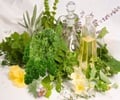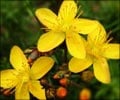Researchers have developed a biological method to tease out compounds from herbal medicines and medicinal herbal mixtures which produce their reputed medicinal benefits.
The boffins from University of Maryland, Baltimore (UMB), reported the development in the science journal PLos ONE."This provides the first step to find, from all of the hundreds of compounds in herbs, which ones have potential for medicinal purposes. And you can do this very quickly and efficiently," said co-author Laura Dosanjh, graduate student with the School of Pharmacy at UMB.
Using tiny worms that live only 20 days, the team sorted out which compounds found in two common Chinese herbal formulations showed most potential for their stated purpose: extending life expectancy.
Cinnamon and ginseng won, showing the most promise.
A team led by Yuan Luo PhD, MS, associate professor at the School, conducted a first-of-its- kind, "systematic evaluation" of a mixture of 10 herbs called Shi-Quan-Da-Bu-Tang (SQDB), reportedly effective for fatigue and energy; and an 11-herb formula called Huo Luo Xiao Ling Dan (HLXL) used as a the treatment of arthritic joint pain. Both mixtures are reputed to have benefits for healthy living and longevity in humans.
The researchers tested the mixtures, as well as each separate herb in them, on the laboratory worm model C. elegans. This particular worm-which biochemists often use as their 'lab rat', shares genes for aging and other traits with humans and other organisms.
Advertisement
Ginseng root (Panax ginseng) from SQDB extended life span by 7.7 percent. Ginseng is not an ingredient in HLXL.
Advertisement
Furthermore, the life span-extending herbs appreciatively reduced in the expression in C. elegans of a toxicity factor, amyloid, which is a hallmark in the human brain of pathological development of Alzheimer's disease.
Source-ANI
TRI













